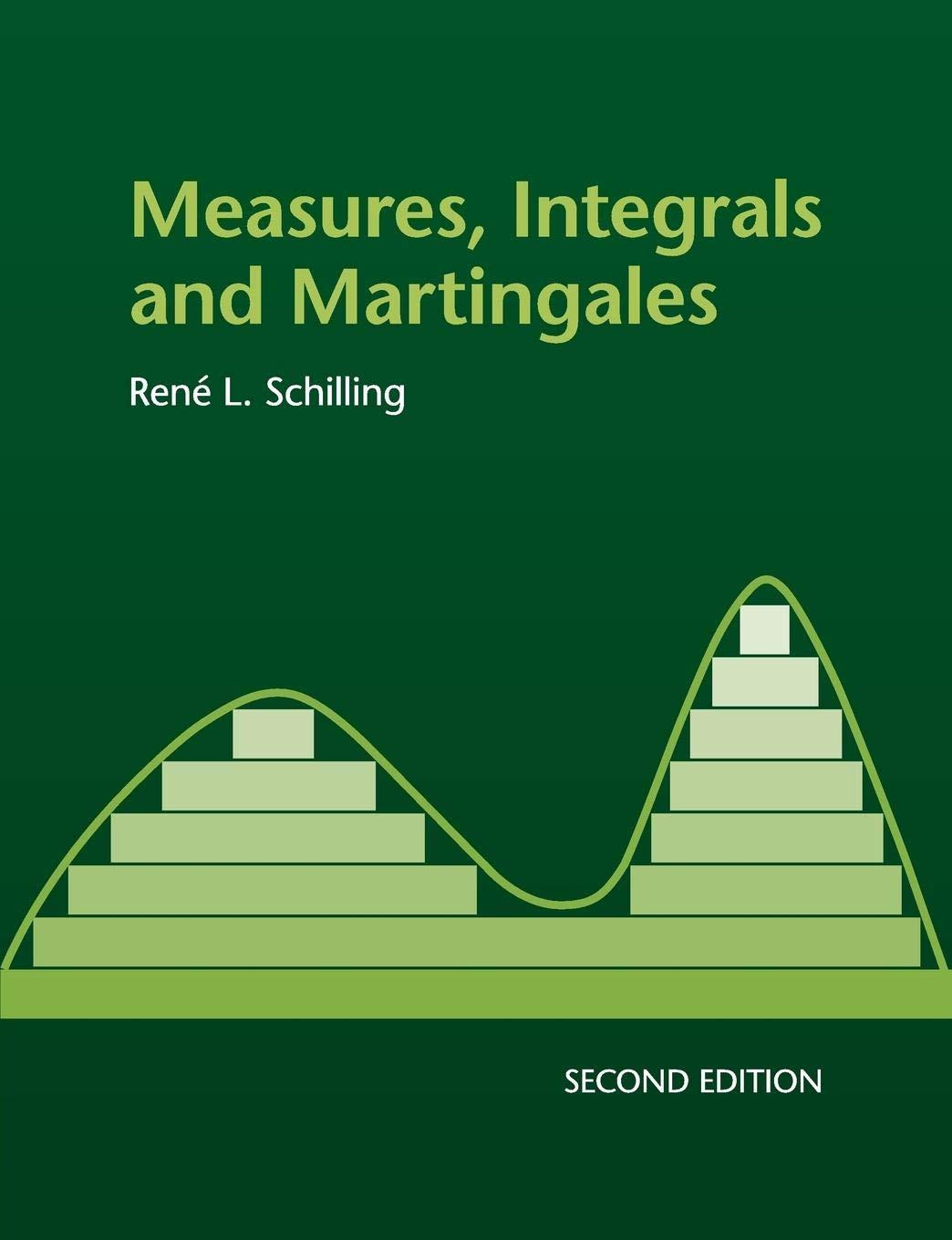Completion (5). Let ((X, mathscr{A}, mu)) and ((Y, mathscr{B}, u)) be any two measure spaces such that
Question:
Completion (5). Let \((X, \mathscr{A}, \mu)\) and \((Y, \mathscr{B}, u)\) be any two measure spaces such that \(\mathscr{A} eq\) \(\mathscr{P}(X)\) and such that \(\mathscr{B}\) contains non-empty null sets.
(i) Show that \(\mu \times u\) on \((X \times Y, \mathscr{A} \otimes \mathscr{B})\) is not complete, even if both \(\mu\) and \(u\) are complete.
(ii) Conclude from (i) that neither \(\left(\mathbb{R}^{2}, \mathscr{B}(\mathbb{R}) \otimes \mathscr{B}(\mathbb{R}), \lambda \times \lambdaight)\) nor the product of the completed spaces \(\left(\mathbb{R}^{2}, \mathscr{B}^{*}(\mathbb{R}) \otimes \mathscr{B}^{*}(\mathbb{R}), \bar{\lambda} \times \bar{\lambda}ight)\) is complete.
[ you may assume in (ii) that \(\mathscr{B}(\mathbb{R}), \mathscr{B}^{*}(\mathbb{R}) eq \mathscr{P}(\mathbb{R})\), see Appendix G.]
in the sense that, if either side converges absolutely, so does the other, in which case the two sides are equal.
Step by Step Answer:






